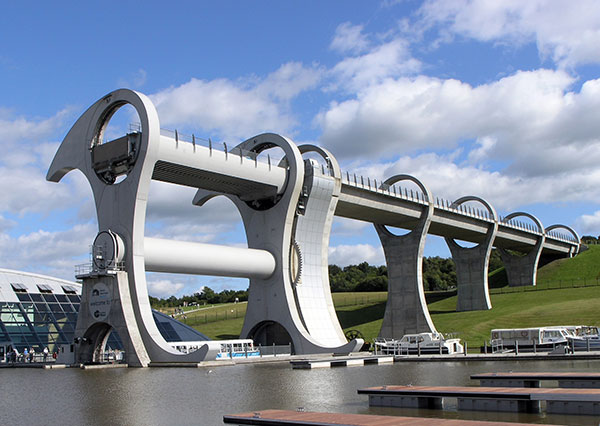Take a drive through the city. Drive through stop lights. Drive past sewer drains and over manhole covers. Now drive over the bridges and the culverts and past the electrical lines, relay stations, and the water treatment plant. If someone finds themselves a little confused about the job direction they should take in their lives, this imaginative drive around them will show that the world we live in is one that is maintained and built by civil engineers.

These are the great folks who build the freeways and allow for their maintenance. They are also the good folks who keep these structures working and are first on the scene after a disaster to get the power and water running. Civil engineers make modern life possible, and if someone was looking for job security, civil engineering makes a great choice.
The civil engineer should not be confused with the construction worker. Although the civil engineer is usually on site for construction, and many of them work as construction workers to help pay for the extensive education that a civil engineer requires, the civil engineer is responsible for the design and planning of these projects. Typically, civil engineers need a four year degree, and in order to advance in the field a further two years is often required. This is because the math requirements for civil engineers are quite strict, and the practical application of the higher math is often only available at the college and university.
What does a civil engineer do exactly? As mentioned before they are responsible for the design and construction of publicly used assets like bridges and airports. In order to plan civil engineering projects like a new road, a civil engineer must analyze the data contained in survey reports and maps. Civil engineers are usually responsible for the surveys themselves, either directly or in a supervisory manner with another team. They take an active role in the analysis of construction costs of proposed projects, and more importantly, they are the people who ensure that all building projects meet government regulatory standards. Safety standards are important for both regular use of public works and emergencies that might affect them like earthquakes.
Civil engineers are also responsible for all the determinations involved for a proposed building site. For instance, the civil engineer must test the soils for proper strength of foundation, and they determine the ways that the soil can be made adequate if it is found deficient. In terms of overall projects, civil engineers are deeply involved in the economic planning of the construction process. They consider the costs of the construction and the overall costs of materials and labor for any proposed building project. This kind of cost analysis might be executed through the design of software made to analyze the overall building project in addition to analyzing various stresses and weak points of the project.
It may sound daunting, but civil engineering is quite exciting for the individual with a disposition towards math and good special analysis. The outlook for civil engineering remains strong, and the field is fairly lucrative and secure.
Jane Kendrick writes articles for several educational blogs including one about The Top 10 Best Majors for Indecisive Students.
Roads Will Never Go Out of Style: Why We Need Civil Engineers,



Peter Clark
Nov 14. 2012
Civil Engineering is a great way on how to serve our culture and society. My father is actually a civil engineer and I want to study the same too
Walter Klein
Nov 17. 2012
Appreciate you for sharing this beautiful article for civil engineering. It is essential in our modern world to have great people and architects who build such monuments of technology. Civil Engineering serves us all
Anthony Green
Nov 17. 2012
The civilized worlds needs to rely on civil engineers as well!